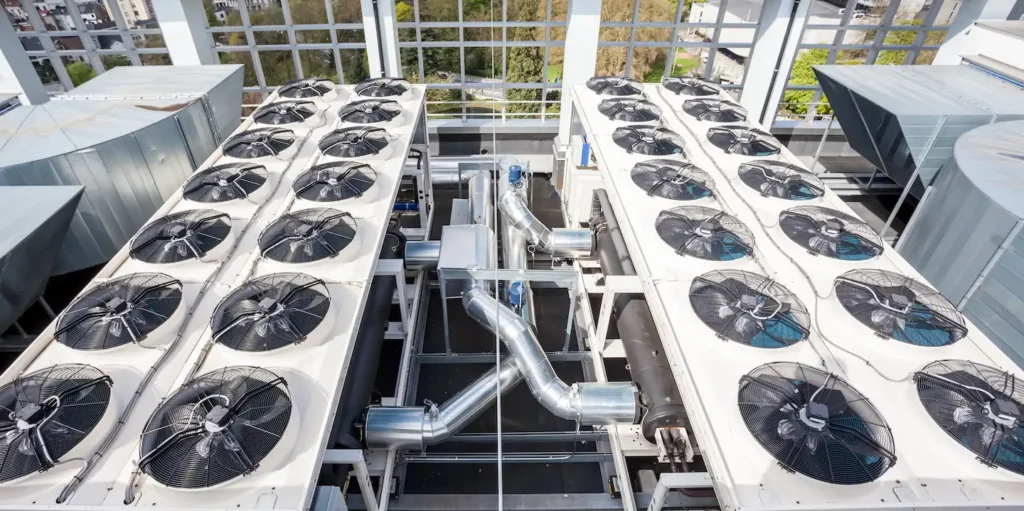Change is the only constant for HVAC (Heating, Ventilation, and Air Conditioning) contractors. As society evolves towards sustainability and energy efficiency, regulatory bodies continuously refine standards to mitigate environmental impacts and enhance indoor comfort. These shifts in regulations ripple through the HVAC industry, significantly impacting contractors. This comprehensive exploration will delve deeper into the dynamic landscape of HVAC regulations and meticulously dissect how they influence contractors’ strategies and businesses.
The 2023 HVAC regulatory changes have come into effect, impacting various aspects of the industry. Let’s look into the essential modifications:
Energy Efficiency Standards:
The new regulations emphasize increased energy efficiency. Contractors need to adapt to updated equipment standards, pricing, and ratings.
Notably, the energy efficiency ratio (EER), seasonal energy efficiency ratio (SEER), and heating seasonal performance factor (HSPF) have been updated.
For instance, the type of equipment installed is changing based on efficiency ratings. Contractors are revising their installation and design processes for residential new construction (RNC) equipment.
SEER2 Standards:
The SEER2 standards vary by region. Some equipment cannot be sold in the South after January 1, 2023. Contractors can transition from lower SEER equipment to SEER2.
The challenge lies in explaining these changes to customers. A 16 SEER unit is now a 15.2 SEER, which comes at a higher cost. However, this standardization benefits the HVAC industry.
Minimum SEER and HSPF Requirements:
All gas, electric, and heat pump (HP) equipment must meet new minimum standards: 14.3 SEER and HSPF 8.8.
Manufacturers are rerating their equipment using updated Department of Energy (DOE) guidelines, accounting for external static in homes.
Impact on Manufacturers:
Manufacturers face significant changes in testing protocols. Components are being adjusted to achieve correct SEER ratings due to ongoing supply chain issues.
The shift toward energy efficiency necessitates adaptations in equipment design and production.
Evolving Energy Efficiency Standards:
Energy efficiency stands tall as a global concern for policymakers, driven by the imperative to reduce carbon emissions and combat climate change. Within the HVAC sector, heating and cooling systems are substantial energy consumers, making them a prime target for regulatory interventions to improve efficiency. Regulatory bodies such as the U.S. Environmental Protection Agency (EPA), the European Union (EU), and similar entities worldwide continually update and tighten Energy Star ratings, seasonal efficiency metrics (e.g., SEER and HSPF), and other benchmarks to raise the bar for HVAC equipment performance. For contractors, this means staying abreast of these changes to recommend, install, and service systems that comply with the latest standards, ensuring regulatory adherence, customer satisfaction, and long-term energy savings.
Transition to Low-GWP Refrigerants:
The phase-out of high-GWP (Global Warming Potential) refrigerants, such as R-22 and R-410A, represents a seismic shift in the HVAC landscape. Driven by environmental concerns and international agreements like the Kigali Amendment to the Montreal Protocol, which aims to reduce the production and consumption of hydrofluorocarbons (HFCs), regulators are pushing for adopting low-GWP alternatives. Contractors are tasked with navigating this transition, which involves familiarizing themselves with alternative refrigerants like R-32 and R-454B, modifying equipment, and upgrading their skill sets for safely handling and servicing these new refrigerants. Moreover, contractors must educate clients about the benefits of transitioning to low-GWP refrigerants, including reduced environmental impact and future-proofing their HVAC systems against regulatory changes.
Focus on Indoor Air Quality (IAQ):
The importance of indoor air quality (IAQ) has been underscored by recent events, such as the COVID-19 pandemic, which heightened awareness of airborne pathogens and pollutants. In response, regulatory bodies and industry organizations have intensified their focus on IAQ standards and guidelines. For instance, ASHRAE’s Air Quality Guide and codes, like the International Mechanical Code (IMC), now include ventilation rates, air filtration, and pollutant control provisions. Contractors must adapt to this shifting landscape by integrating IAQ solutions. This may involve installing advanced filtration systems, UV germicidal irradiation, or ventilation upgrades to meet evolving customer demands and regulatory requirements. By prioritizing IAQ, contractors contribute to healthier indoor environments and differentiate themselves in a competitive market that is increasingly attuned to the importance of air quality.
Adoption of Smart and Connected Technologies:
The advent of intelligent buildings and IoT (Internet of Things) has ushered in a new era of HVAC innovation. Regulatory frameworks are increasingly incentivizing or mandating the integration of intelligent and connected technologies to optimize energy usage, enhance occupant comfort, and enable remote monitoring and diagnostics. For contractors, this presents both challenges and opportunities. Embracing digital transformation requires acquiring system integration, data analytics, and cybersecurity skills to deploy and maintain these advanced HVAC systems effectively. By staying ahead of the curve and offering cutting-edge solutions, contractors can position themselves as trusted partners towards more intelligent, sustainable buildings.
Compliance and Training Imperatives:
Compliance becomes paramount for HVAC contractors in a landscape fraught with regulatory complexities. Non-compliance risks legal repercussions, tarnished reputations and erodes customer trust. To navigate this regulatory maze, contractors must invest in ongoing training and certification programs. Organizations such as the Air Conditioning Contractors of America (ACCA) and North American Technician Excellence (NATE) offer HVAC professionals valuable resources and training opportunities. By prioritizing continuous learning and professional development, contractors can ensure they stay compliant, competitive, and well-equipped to meet the evolving needs of their clients and regulatory requirements.
With these new changes, large corporations are adjusting their requirements for preferred vendors. Contractors are being asked to adhere to higher safety standards in vetting systems such as Avetta®. The biggest changes seem to include updated HVAC safety programs, employee training requirements, and less liability for poor safety statistics and EMR (experience modification rate).
Contractor Compliance
With Spring quickly approaching, HVAC Contractors and affiliated service providers must ensure client compliance. Having current company materials such as Safety Manuals and OSHA logs can streamline pre qualification processes and solidify a slot on bid lists and preferred contractor lists. Large corporations such as SSAB® favor companies that maintain green-approved status in Avetta® and other contractor portals.
As part of Cascade QMS’ Avetta® Management Plan, we ensure your company is appropriately set up in the system and that your status remains in good standing. Reach out for more information!
The HVAC industry is profoundly transformed by shifting regulatory landscapes, technological advancements, and changing customer expectations. For contractors, these changes represent both challenges and opportunities.
By staying informed, adaptable, and proactive, contractors can navigate the winds of change, ensuring their businesses thrive in a rapidly evolving environment. Whether it’s emitting energy efficiency standards, transitioning to low-GWP refrigerants, prioritizing indoor air quality, adopting intelligent technologies, or investing in compliance and training, contractors play a pivotal role in shaping the future of HVAC and contributing to a more sustainable and comfortable environment for generations to come. Cascade QMS consultants are on standby to help you become a frontrunner in your industry!


